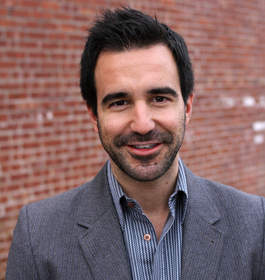TULSA, OK--(Marketwired - Apr 9, 2013) - The current generation is the most educated and technologically advanced to ever enter the workforce. However, recent numbers from the U.S. Department of Labor show unemployment among Millennials, ages 18-29, is nearly double the national rate.
So, what gives?
Tomas Chamorro-Premuzic, an international authority in personality profiling and psychometric testing, said the Facebook Generation lacks some of the basic skills to be employed.
"The real talent shortage is a shortage of soft skills," said Chamorro-Premuzic. "This is primarily because most organizations are unable to identify people with the right set of soft skills. They focus too much on what can be taught in college."
A new product released today by Hogan Assessments aims to change that. The Tulsa-based provider of workplace personality assessments introduced the Hogan EQ Report, a scientifically validated tool to measure emotional intelligence.
"It's easy for organizations to identify people with the right hard skills by looking at their resume and qualifications," said Chamorro-Premuzic, Hogan vice president of research and innovation. "Increasingly, though, the ability to work effectively in a business is dependent on individuals' soft skills -- Can they fit into the culture, work with others and read the politics?"
Based on Hogan's trademark assessments, the Hogan Personality Inventory and the Hogan Development Survey, the report assesses EQ through the lens of reputation, not self-identity.
"Our data set helps us predict how people are likely to see you at work," said Chamorro-Premuzic. "It's not about EQ in the sense of self-perceptions. Most people are deluded about themselves, not only about their EQ, but also about their IQ, their driving capacity, even their romantic charms."
Valuable for candidate selection, the Hogan EQ Report may also be used for career and leadership development.
"Self-awareness is the keystone of success in the workplace," said Trish Kellett, director of the Hogan Coaching Network. "By understanding our natural strengths and weaknesses, we can learn to compensate for those behaviors."
Hogan's self-administered online assessment asks individuals to respond to a series of interview-like questions. A report is generated instantly.
"We developed this assessment in a systematic, empirical and data-driven way by going to our data archive and looking at hundreds of thousands of people who have completed valid measures of personality," said Chamorro-Premuzic. "Our data helped us identify the main set of behaviors, thoughts, preferences, values and dispositions that make some people better able to deal with others."
The report provides an overall EQ score, as well as scores and feedback related to individuals' employability, leadership potential and ability to work in teams.
"EQ is a very good overall picture of someone's soft skills," said Chamorro-Premuzic. "No matter what your qualifications are, whether you're an engineer, salesperson or marketer, if you don't have a basic level of emotional intelligence you will fail.
"People with higher EQ will do well because they will be able to deal with others, understand what they should do and how they should behave. That alone can compensate for a lack of hard skills or expertise."
For more information on the Hogan EQ Report, visit: www.hoganassessments.com.
About Hogan
Hogan Assessment Systems is the global leader in providing comprehensive, research-based personality assessment and consulting services. Since 1987, Hogan has helped businesses dramatically reduce turnover and increase productivity by hiring the right people, developing key talent, and evaluating leadership potential. Headquartered in Tulsa, Okla., the firm provides assessment solutions in 56 countries and 43 languages. For more information, visit hoganassessments.com.

